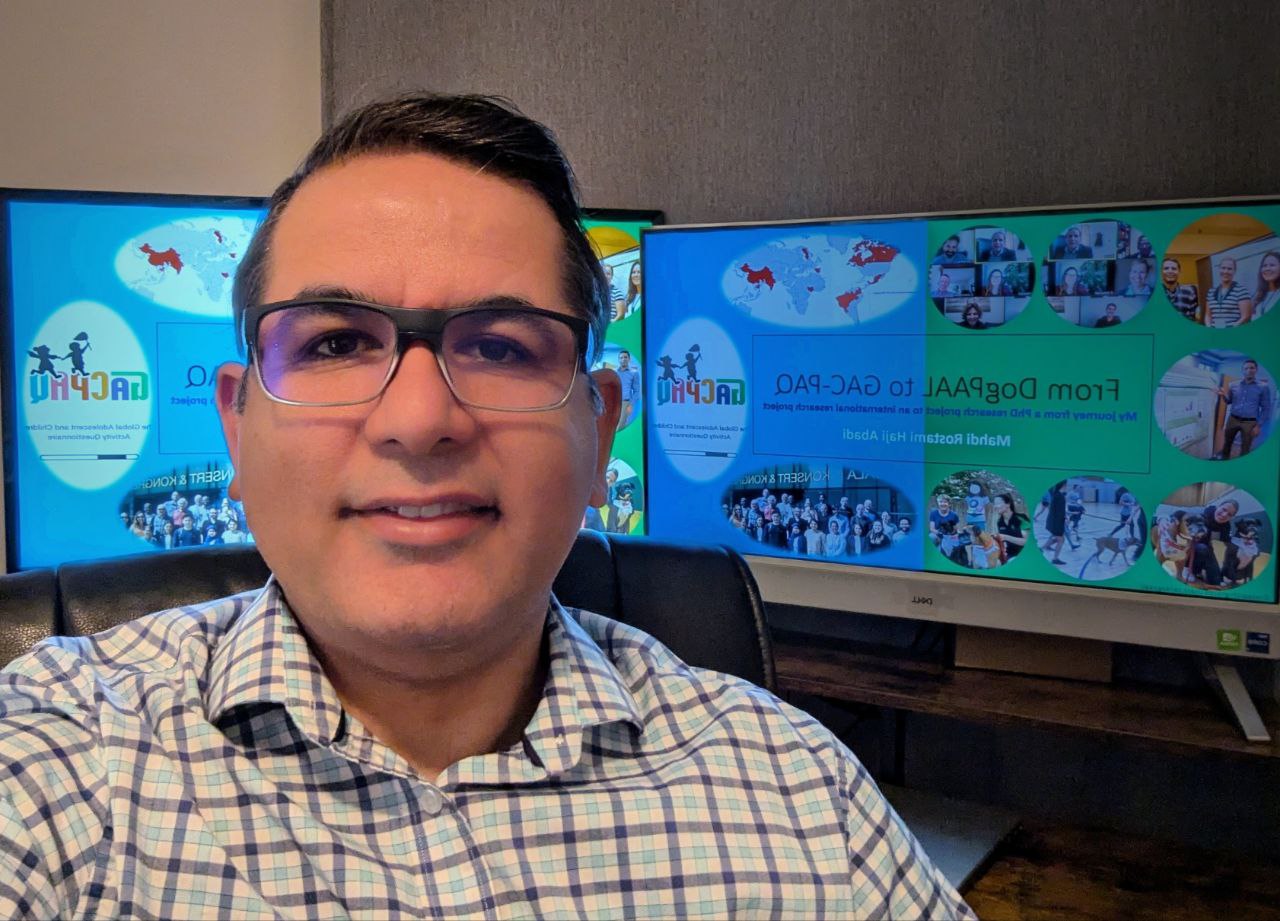
Alumni Feature: Dr. Mahdi Rostami (PhD'22)
Get to know alumnus Dr. Mahdi Rostami (PhD'22).
By Kinesiology CommunicationsDr. Rostami is managing an international research project to develop and validate a new physical activity questionnaire for children and adolescents. We invite you to learn more about him:
How has your PhD degree in Kinesiology contributed to your professional success?
My doctoral degree in Kinesiology has significantly contributed to my professional success in several ways. It has provided me with a deep understanding of the role of physical activity in children's health, especially bone health, and how it impacts health later in life. This knowledge has been invaluable in my role as a researcher in the field of physical activity. Additionally, it has allowed me to contribute to advancing knowledge in the field through my research and publications. Furthermore, it has opened doors to opportunities for collaboration and networking within the academic and professional community. Most importantly, it has equipped me with the knowledge and skills necessary to excel in my career, instilled deep confidence in my abilities, and enabled me to make meaningful contributions to the field.
Can you share some specific skills, knowledge, or experiences you gained during your PhD program that have been particularly useful in your career?
My PhD program was a pivotal period in my life, where I gained advanced research skills, critical thinking abilities, and project management experience. These skills have been instrumental in my career, allowing me to manage complex research projects. Additionally, I developed skills in advanced data analysis, original research and review paper writing, and presenting findings at conferences or knowledge translation sessions, all of which have been valuable in my professional endeavours.
How did your PhD in Kinesiology prepare you for the challenges you've faced in your profession?
As a PhD student/candidate, I had the opportunity to practice most of the challenges you may face in the future as a researcher. The support and guidance from my supervisor, other mentors on my PhD committee, and even my student fellows provided a robust support system. This system not only allowed me to practice how to tackle the challenges I was facing during my PhD program but also prepared me for future professional challenges. It equipped me with the skills and knowledge needed for time management, learning new skills or expertise, expressing my point of view, negotiating, working under pressure, etc.
Can you provide examples of how your PhD degree in Kinesiology has helped you make a difference in your field?
As part of my PhD program, I gained expertise in using and analyzing accelerometer data to assess daily physical activity, particularly in children. I apply this knowledge/skill, besides other knowledge and experiences I gather through my entire education (including PhD) and working with children (as a teacher, coach and researcher), to current international project management (GAC-PAQ), where we validate a newly developed app based physical activity questionnaire by accelerometer measured physical activity of children (8-17 years) in 14 countries around the globe.
Looking back, what aspects of your PhD program do you feel were most valuable for your professional development?
As I reflect on my PhD program, I find that one of the most valuable aspects of my PhD program was working in a new field of research, which was completely different from my master's program and research. Although it brought much pressure and required hard work to learn new knowledge and skills, it helped me develop a new set of skills that have been beneficial for my career, including working effectively under pressure and developing self-learning strategies. Additionally, having committee members with diverse knowledge and perspectives from several departments at the University of Saskatchewan allowed me to see my research from the viewpoints of other scientists with different backgrounds and experiences from mine. This experience has continued to be valuable in my current research project, where I work with a diverse group of researchers from 5 continents.
What advice would you give to current students pursuing a PhD or MSc in Kinesiology or those considering this career option to maximize their success in the field?
Remember to enjoy the journey but try to have a timeline and stick to it. You're not just a student but also a proactive learner. Seek support and guidance but remember to take charge of your own learning. While respecting other people's time, being a little pushy may save you not just months but a year.

